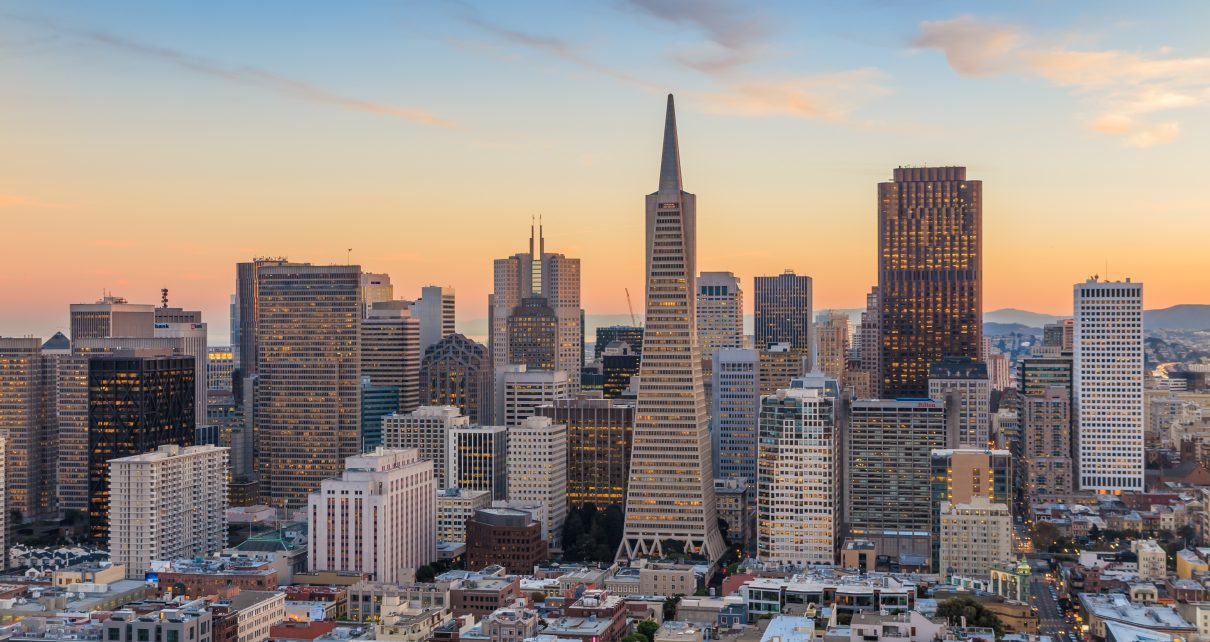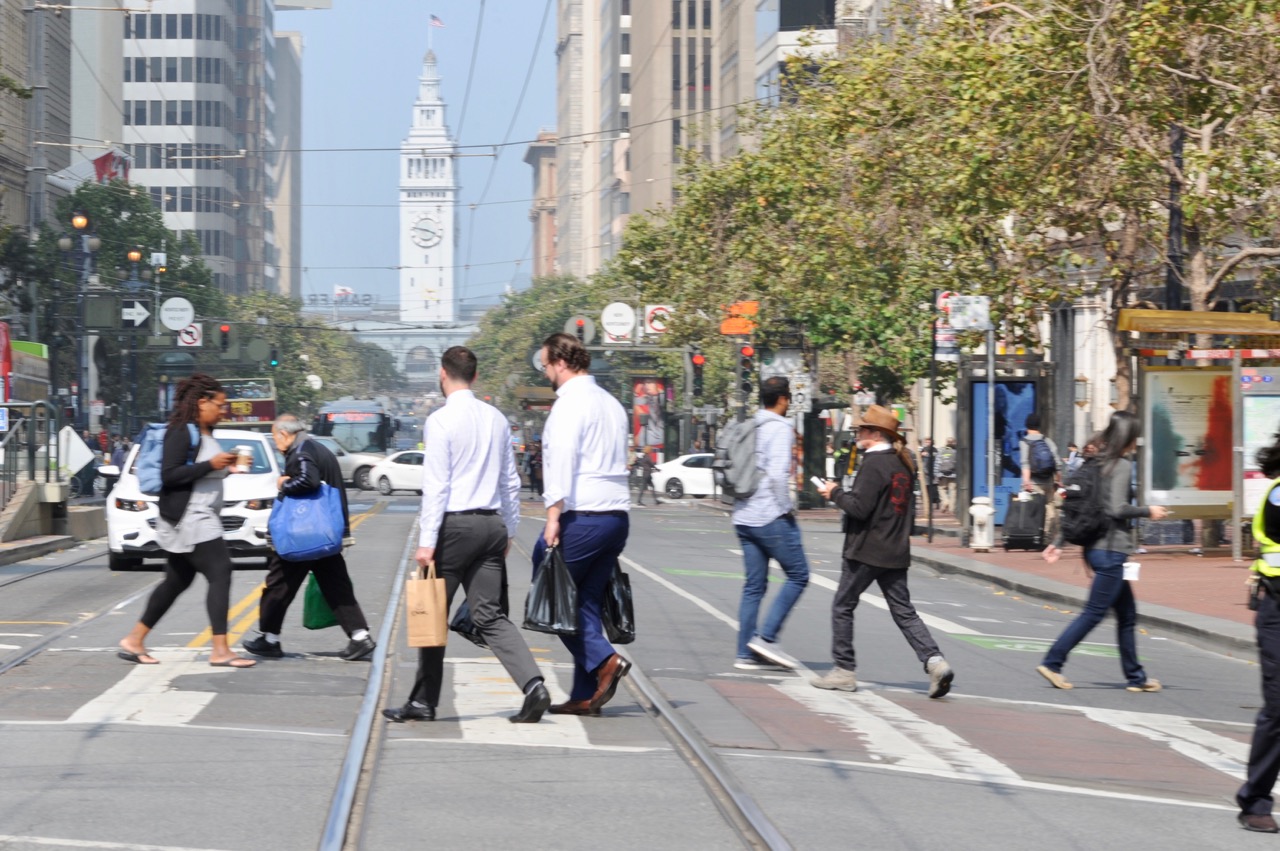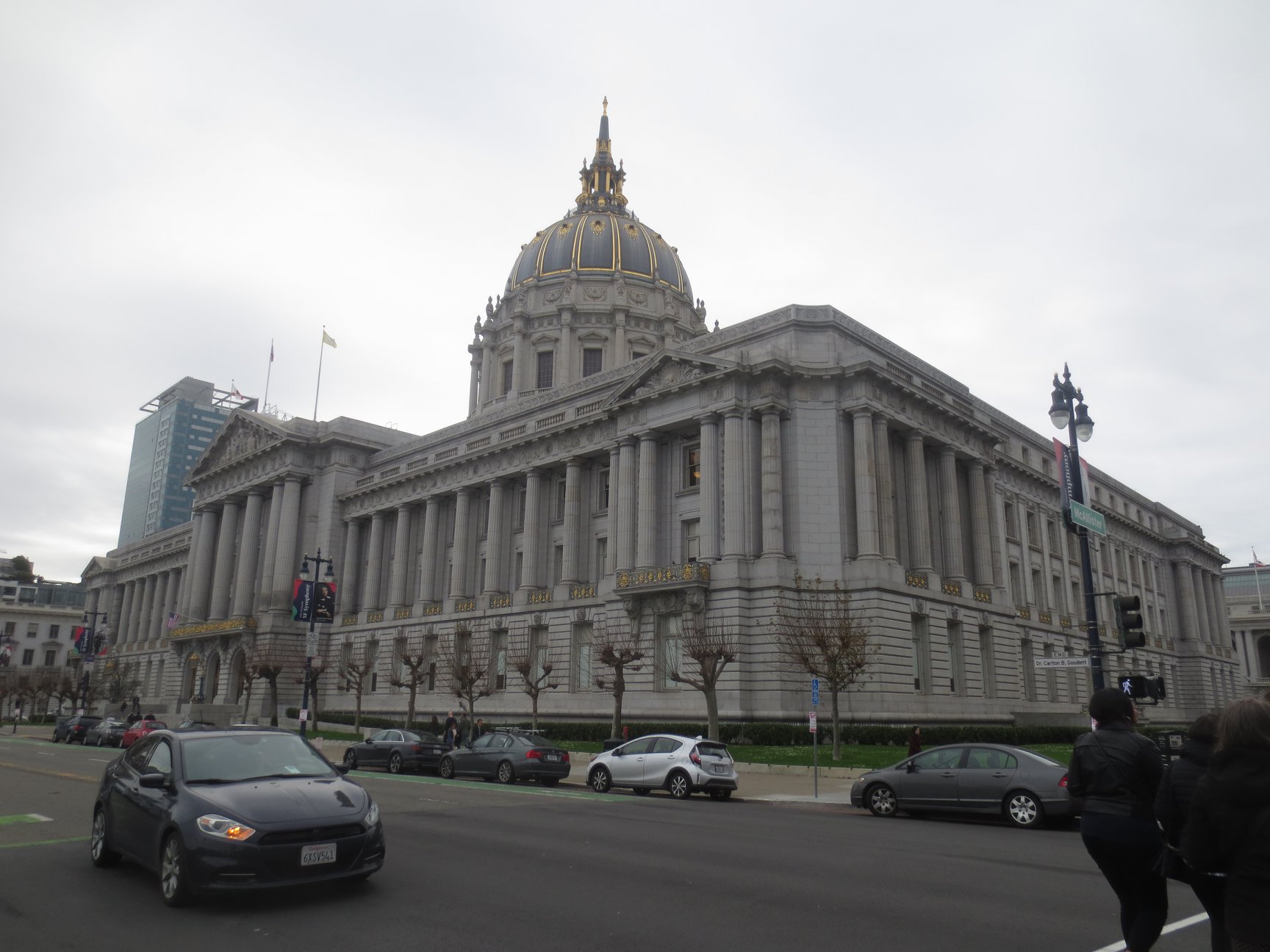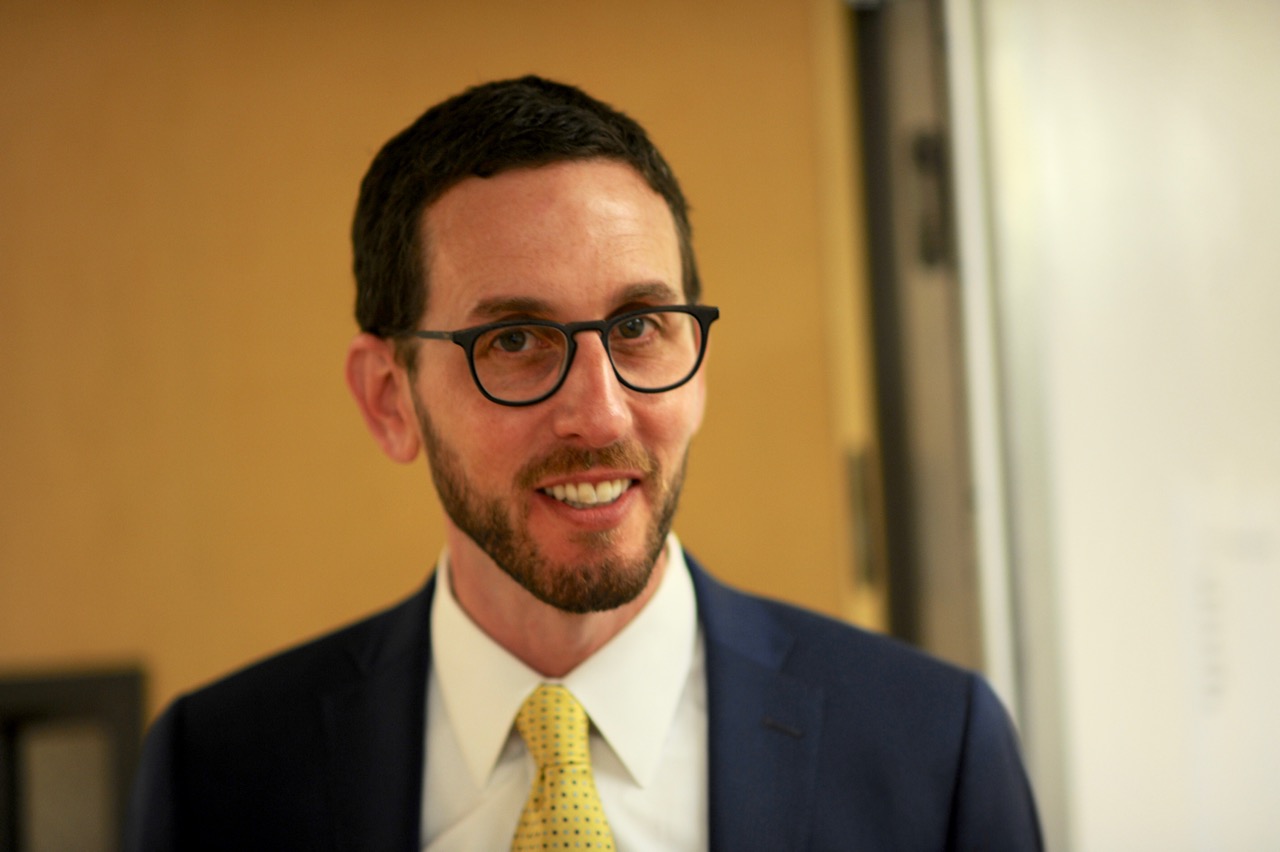
Beautiful view of business center in downtown San Francisco at sunset. (Photo: f11photo/Shutterstock)
GM Cruise To Slash The Number Of Robotaxis By 50% In San Francisco Following A Series Of Accidents
Decision comes as city is attempting to reverse recent CPUC decision expanding robotaxi service in SF
By Evan Symon, August 22, 2023 2:30 am
During the weekend, General Motors-backed driverless taxi company Cruise announced that they would be cutting their entire fleet in San Francisco by 50% due to a series of recent accidents involving robotaxis, including an incident last week when a robotaxi slammed into a firetruck, injuring a passenger in the process.
Since June 2021 the city of San Francisco and driverless taxi companies such as Cruise and Google-backed Waymo have been at odds over what the limits of the services should be. While CPUC slowly expanded the limits of the robotaxis, reports of blocked traffic, blocking emergency workers, blocking mass transit, and other worrying behavior by the cars becoming commonplace in the city. The SFPD, SFFD, and other emergency services soon began raising the issue of just how much these companies should expand by, as there were many kinks to be worked out.
Since March of 2022, both companies have been allowed to operate during certain hours of the day. Cruise offered paid rides in about 1/3rd of the city and Waymo offering free trips as the technology improves under the constant usage. As of August 2023, Cruise has 300 vehicles driving around San Francisco at night and 100 during daytime hours, with Waymo only operating 250 vehicles during the day.
Earlier this month, CPUC voted 3-1 to expand robotaxi services in San Francisco by being able to offer paid rides at any time during the day throughout the city, and not be constrained by prior geographic limits, designated operating hours, and paid ride limits. The bulk of the meeting prior to the vote was largely filled with local residents, city workers, and city officials voicing opposition against the plan. Some within the SFPD and SFFD pointed to dozens of incidents in the last six months where rescue operations had been impeded by self-driving cars. Officials stressed that the incidents, which included driverless cars not moving when being told to by first responders on scene, needed to be solved first before more expansion is given.
“Our folks cannot be paying attention to an autonomous vehicle when we’ve got ladders to throw,” said San Francisco Fire Chief Jeanine Nicholson at the meeting. “I am not anti-technology, I am pro-safety.”
However, CPUC President John Reynolds, a former general counsel for Cruise, played off the concerns, telling the media following the vote that “Today is the first of many steps in bringing AV transportation services to Californians. While we don’t yet have the data to judge AVs against the standard that humans are setting, I do believe in the potential of this technology to increase safety on the roadway.”
Robotaxis in SF
A few days following the vote, the San Francisco Board of Supervisors announced that they would be petitioning CPUC for a reconsideration, and threatened to go to other state agencies and to court over the matter if the petition failed.
“What this says to me is when cell phones fail, if there’s a power outage or if there’s a natural disaster like we just saw in Lahaina that these cars could congest our streets at the precise time when we would be needing to deploy emergency apparatus,” said San Francisco Board of Supervisors President Aaron Peskin last week. “The City of San Francisco will be petitioning the California Public Utilities Commission asking them for reconsideration, potentially if need be, taking this to a court of competent jurisdiction, appealing to the Department of Motor Vehicles.
“We’re not trying to put the genie back in the bottle, but we are standing up for public safety. We want to work with them to smooth out the rough edges but it’s not going to be their way or, pun-intended, the highway.”
In addition to the city of San Francisco, the SFPD, the SFFD, and many citizen safety groups wanting a reversal, a number of high profile robotaxi incidents occurred in the city in the ten days following CPUC’s decision. 10 Cruise robotaxis stalled and caused a major backup. Another taxi careened into a construction site and got stuck in wet concrete. And finally a Cruise vehicle caused a passenger injury last Thursday when it crashed into a firetruck. These, as well as dozens of other incidents reported in the months before the CPUC vote, have strengthened San Francisco’s position this week, with Cruise going further on the defensive.
Robotaxi accidents
“First and foremost, our primary concern remains with our passenger and their well-being. We have been in contact to offer support and will remain in touch,” said Cruise General Manager Greg Dietrerich on the latest incident. “In terms of what occurred around the scene of the collision there are many aspects that looked typical from the AV’s perspective and several factors that added complexity to this specific incident.
“The AV positively identified the emergency vehicle almost immediately as it came into view, which is consistent with our underlying safety design and expectation. It is worth noting, however, that the confines of this specific intersection make visual identification more challenging – for humans and AVs alike – as it is significantly occluded by buildings, meaning that it is not possible to see objects around the corner until they are physically very close to the intersection.
“The AV’s ability to successfully chart the emergency vehicle’s path was complicated by the fact that the emergency vehicle was in the oncoming lane of traffic, which it had moved into to bypass the red light. Cruise AVs have the ability to detect emergency sirens, which increase their ability to operate safely around emergency vehicles and accompanying scenes. In this instance, the AV identified the siren as soon as it was distinguishable from the background noise. The Cruise AV did identify the risk of a collision and initiated a braking maneuver, reducing its speed, but was ultimately unable to avoid the collision.
“We realize that we’ll always encounter challenging situations, which is why continuous improvement is central to our work. We will continue to work in partnership with regulators and city departments on EMV interactions to reduce the likelihood of incidents like these happening again.”
However, the defensive angle of the company largely failed. Faced with more and more of the public opposing robotaxis, and concerns growing over their safety, Cruise announced during the weekend that their fleet of robotaxis will be cut in half for the time being. Cruise and the DMV agreed to limit the number of robotaxis to no more than 50 during the day and 150 at night. In a statement, the company added that “It’s clear that Cruise positively impacts overall road safety. Cruise looks forward to working with the CA DMV to make any improvements and provide any data they need to reinforce the safety and efficiency of our fleet.”
Despite this, experts on Monday said that CPUC may now have to reverse their position due to the increased number of accidents, and if they don’t, the state or courts would likely be in San Francisco’s favor.
“Things are going from bad to worse for driverless car services,” said Sebastian Jordan, a mass transit advisor who has worked with multiple agencies in California in the past. “The technology is still too new, and for all they say about how safe they are, they still can’t react the way humans could. Cruise and Waymo and all the other companies can try and spin this, but at the end of the day the facts are that their vehicles are impeding emergency services. Things, right now, are not looking good for them.”
A decision by CPUC to reconsider the robotaxi expansion is to be decided on soon.





I will just get out my popcorn and watch this play out. I just hope no lives are lost in the process.